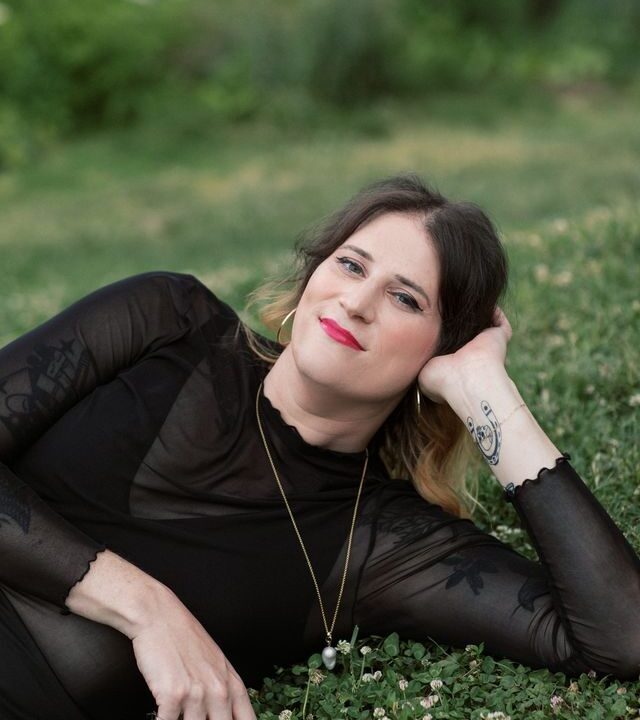Mattie Lubchansky has written and illustrated several graphic novels, including the gripping Boys Weekend (2023), but her latest work, Simplicity, stands apart from her previous books. While it still showcases her sharp humor and striking artwork, the story delves into timely themes—exploring communes that border on cults and the perils of blind devotion.
Vogue spoke with Lubchansky about packing Simplicity with big ideas, her long-standing fascination with cults, the threat of AI to art, and her approach to depicting dystopian worlds. The conversation has been edited for clarity and length.
Vogue: How did the process of creating Simplicity differ from your earlier graphic novels, Boys Weekend and The Antifa Super-Soldier Cookbook?
Mattie Lubchansky: People often say you have to learn how to write each new book, and that was definitely true for me. All three of my books have been very different. The Antifa Super-Soldier Cookbook grew out of my short-form political comics. Boys Weekend wasn’t autobiographical, but it was inspired by personal experiences—I fictionalized them by changing details, setting it in the future, and adding satire.
With Simplicity, I started with the main character, Lucius, and built the world around him. I actually did research for this one, which I don’t usually do, and as I worked on it, I kept adding more layers. Boys Weekend had one central idea—that trans people are human—whereas Simplicity feels like it has forty ideas crammed into it.
Vogue: What drew you to explore communes and cults?
Lubchansky: I’ve always been obsessed with cults—there’s even one in my last book. I realized while finishing Simplicity that both stories have similar foundations. There’s something in the air lately about communes. Over the past few decades, there’s been a lot of queer separatism, and more recently, trans separatist movements. If you’re queer in a big city, chances are you’ve known someone who tried to start a farm with friends.
While researching, I read about 19th-century pre-Marxist socialist groups. Our world today is obviously different, but there’s a parallel in how people feel their lives are being upended—like they’ve lost control over their futures, bodies, and communities. That creates this pull toward starting a new society, thinking, Everyone will see how great it is. I’ve always been fascinated by what makes someone abandon everything to join these groups.
Vogue: Your protagonist, Lucius, confronts the harsh reality of art under capitalism. What concerns you about the growing reliance on tech in the art world?
Lubchansky: Everything. The death of art, for one. [Laughs.] What’s struck me over the past year is how making art—even as a hobby—is such a fundamental part of being human. It’s cheesy, but think about cave paintings. One of the first things humans did was leave handprints on walls. That creative impulse has always been there, and it always will be.
It’s absurd that tech developers want to eliminate art first—so we can do what instead? Send more emails? I don’t know what they think I’d do with my free time. Most people aren’t professional artists, but many have creative hobbies. If you replace that with AI-generated content, what’s left?Doing it for you or whatever—it’s just pointless. I believe these people have a kind of death drive, even a hatred of artists. They envy those with imagination because they lack it themselves, and they almost seem determined to destroy it.
How does it feel to write and illustrate a future dystopia while living in… our current dystopia?
It’s strange—I wrote this book two years ago and finished the artwork over a year ago, when things were bad but not as overtly dystopian. Back then, there was plenty happening in the world that fueled my work—things that demanded resistance. While I was working on this book, the genocide in Gaza was ongoing, and the protests against Cop City in Atlanta were unfolding. It feels like I keep having to push my stories further into the future because our present is already so grim that exaggerating it isn’t even interesting—it’s just bleak and horrifying.
When I wrote this, I asked myself: If nothing changes, what happens? If we fail to act, fail to do what’s necessary—what would that societal collapse look like? I’m trying to trace that path in my mind.
Simplicity
$27 BOOKSHOP
